Content warning: This story discusses incidents of sexual assault and acts of racism.
By now, you've probably heard about the infamous Bama Rush documentary, which premiered on MAX on May 23.

Some reviewers really liked it: One Letterboxd user described it as "a compelling study of why young women gravitate toward sororities...and what it means to figure out who you are while you're trying to conform."

You might have watched the doc and wanted more; you might have not watched it and just want the drama without having to devote an hour and 40 minutes of your time. Either way, from #rushtok to the secret Machine, here I am to tell you what the doc covered... plus additional info, when necessary.

1. The documentary details exactly what on earth "rush" is. As Elizabeth Boyd puts it, "Rush is a social stratification, bar none."
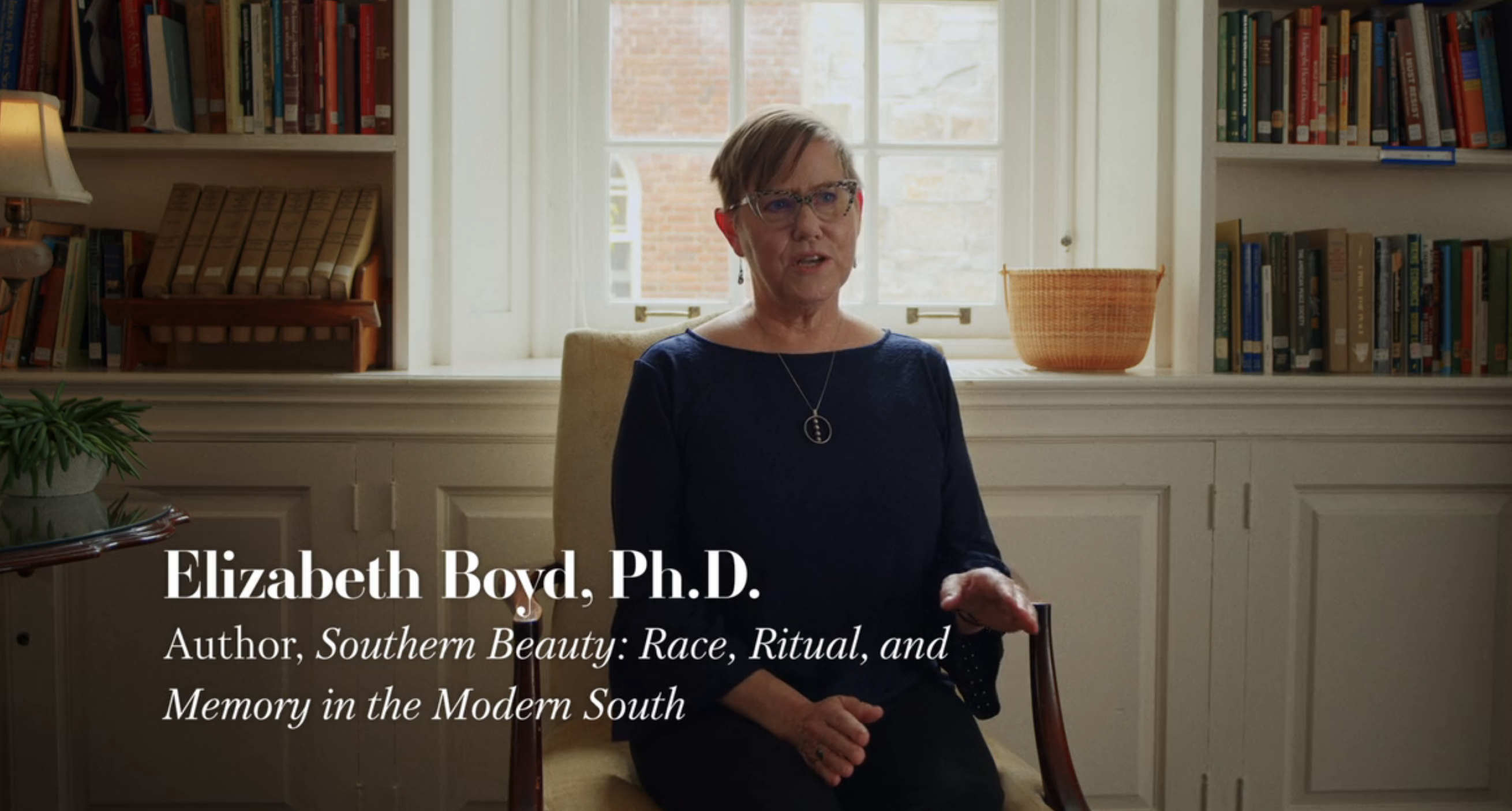
Recruitment, or "rush," typically happens in August, preceding fall term. In 2021, rush at Alabama got even more famous than it already was when posting about it became a major trend on TikTok. PNMs — potential new members — made a trend of posting daily outfits, discussing rush parties, and sharing their hopes for rush outcomes. The trend is known as #rushtok.
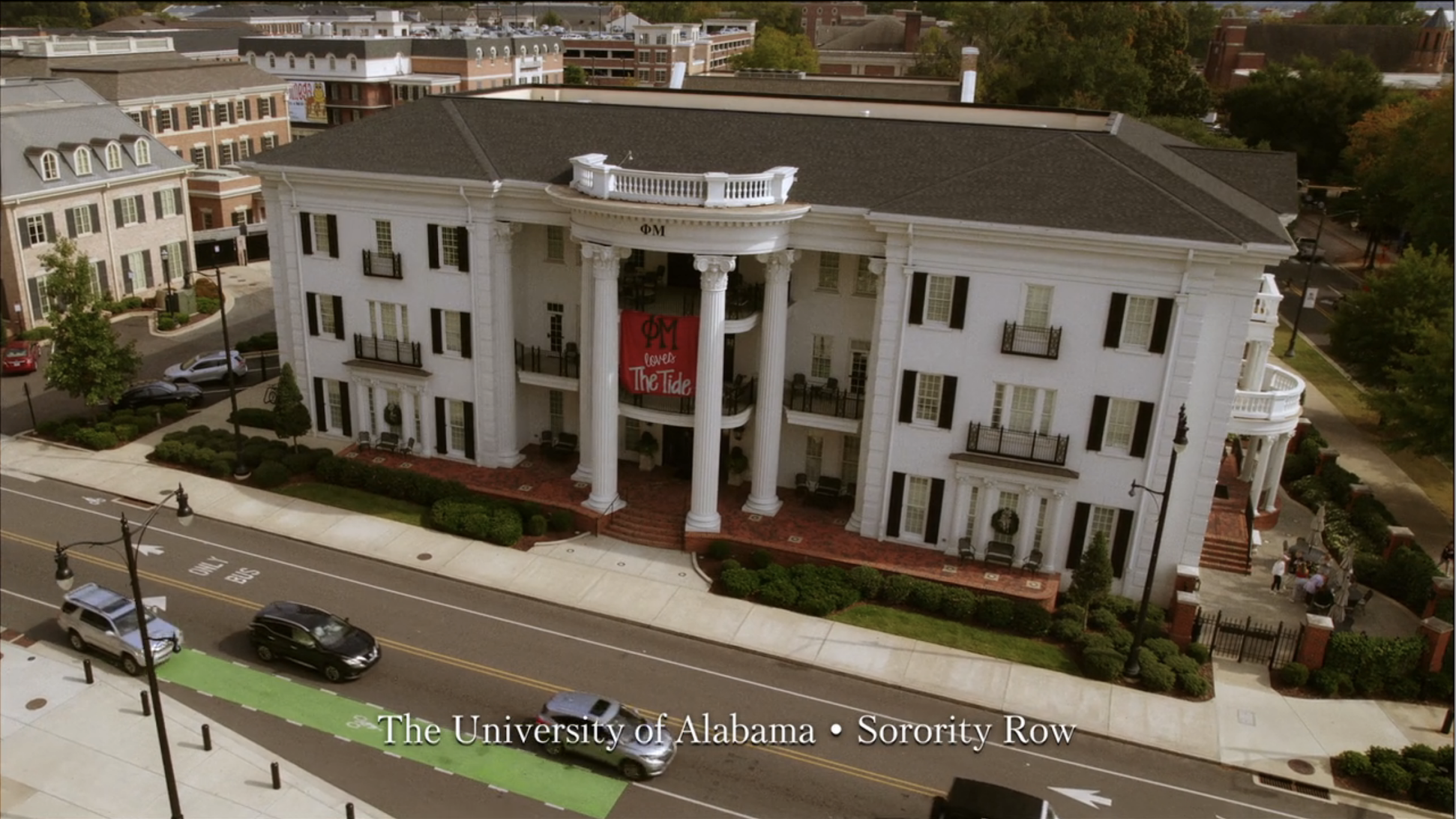
Through use of guests such as Dr. Boyd and interviews with women from both top and low-ranked houses, the doc frames Greek life as being about social power and proximity to in-groups. Every year, about 2,500 girls register to rush at Bama for the chance to get into the most prestigious and popular of sororities.
2. But what makes a sorority popular? The documentary provides an answer: "Fraternity boys, or boys in general," says Gracie O'Connor, a member of Pi Beta Phi at Alabama.

For incoming freshmen, sororities promise community, friendship, and sisterhood. The doc frames this promise as a coded message: As prestigious girls and sororities match up to make each other ever-more prestigious, what they're both gaining is not sisterhood, but social power.

3. Fleit interviews Diana B. Turk, a professor at NYU, about the origins and goals of sororities in general. "In the second generation," she says, "sororities become more focused on parties, on socializing, and on showing that they are the best representatives of true womanhood on campus."
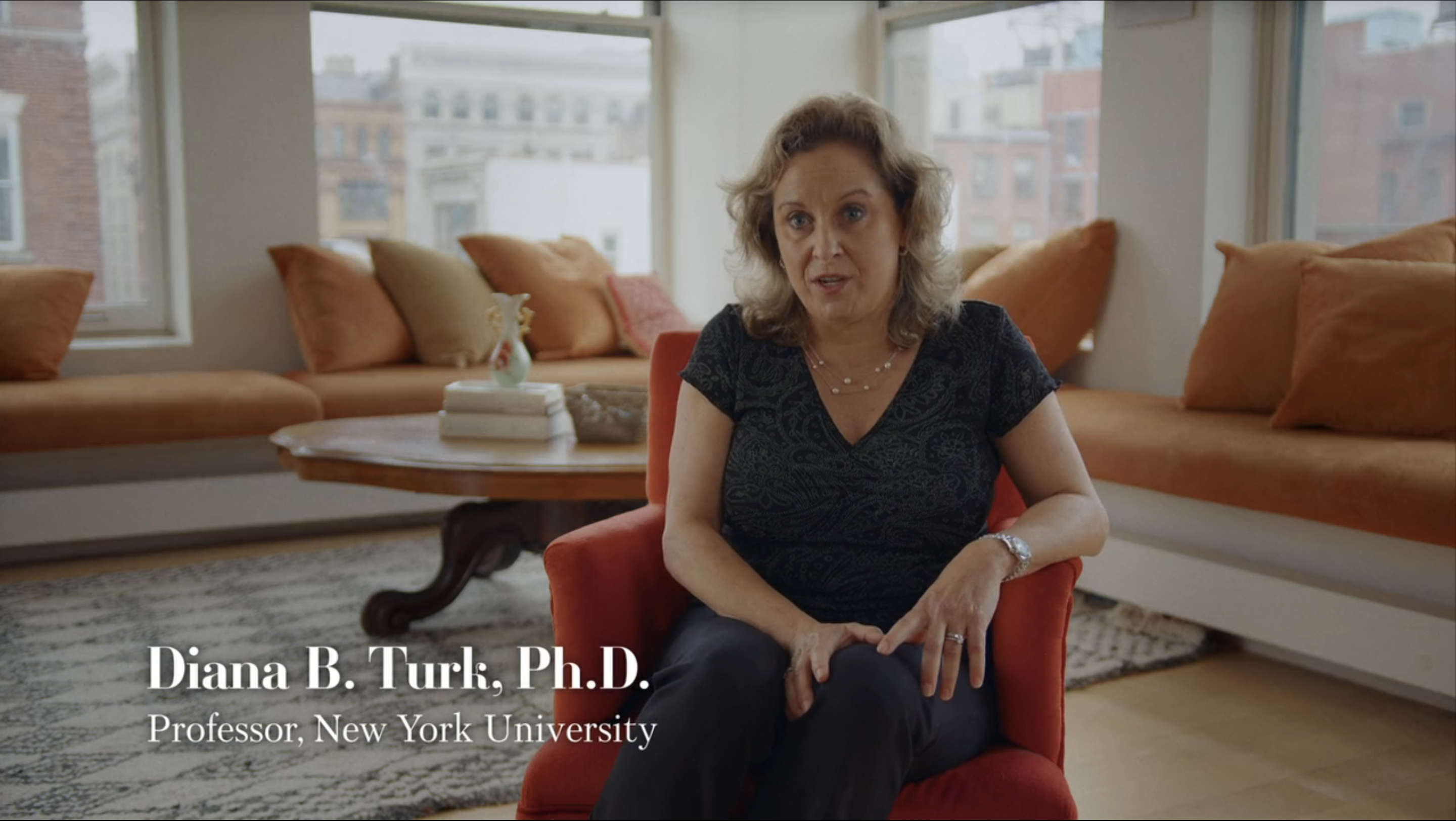
4. The documentary does a good job of showing that while sexism is rampant at the university, it's more conditioned than overt.
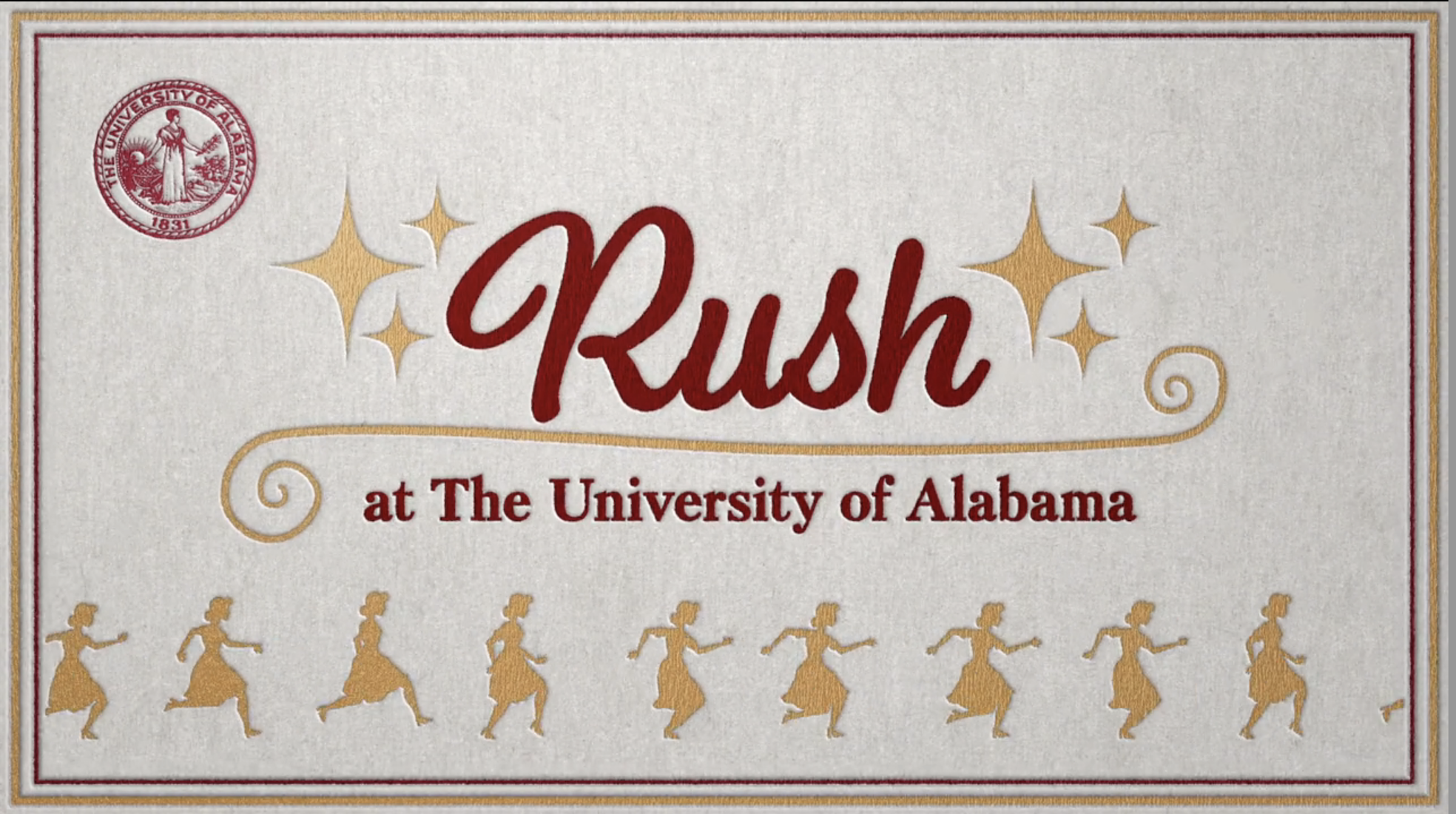
And the documentary shows how violence against women is often part of the college experience.

5. Throughout the rush process, and indeed throughout the entire college experience in a sorority, young women are expected to put on a performance of a very particular type of femininity. In Bama Rush, young women explain some of the "old-timey, strict" rules they have to follow: no alcohol in the house, no wet hair in the house's first floor, no "disrespecting a sister."
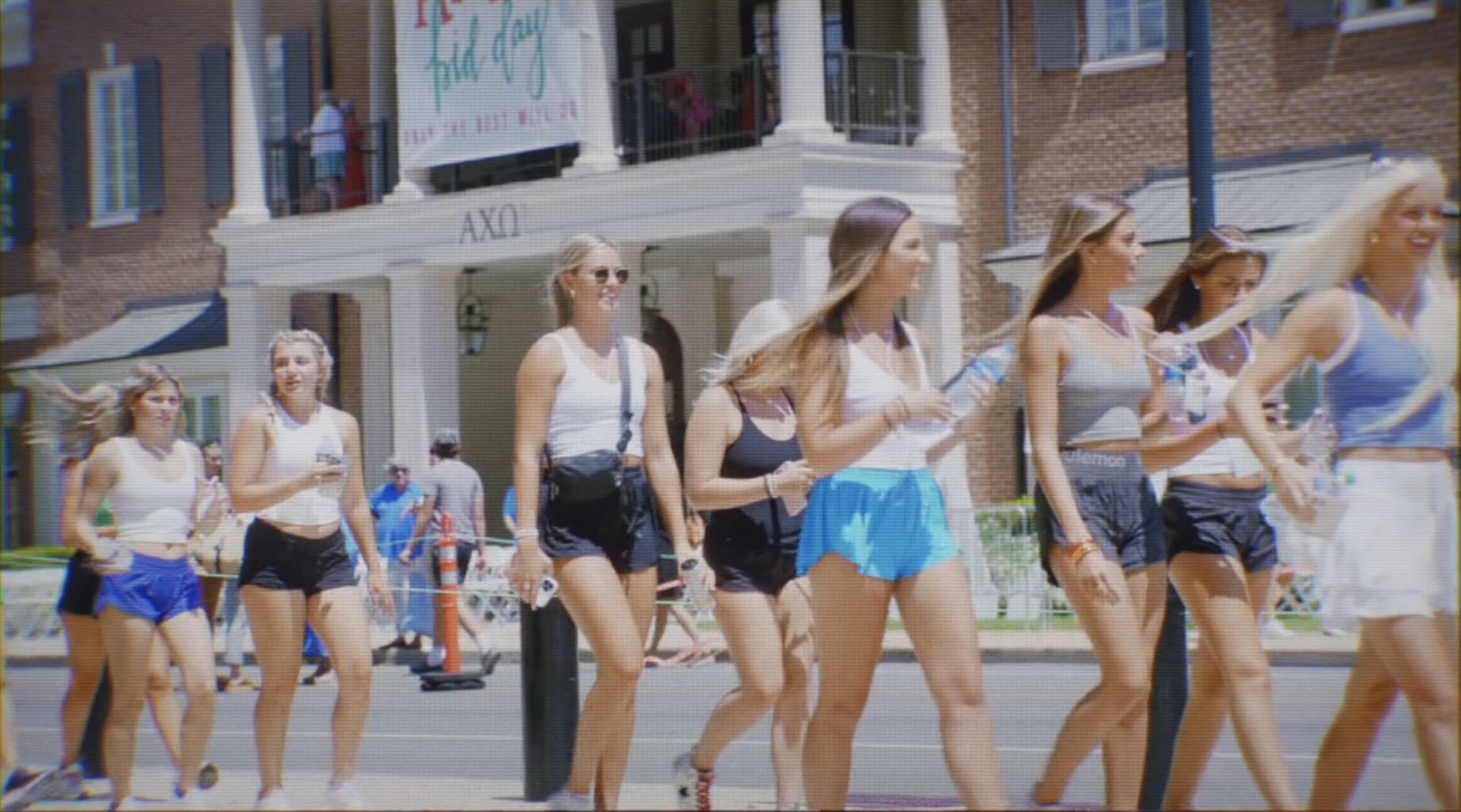
6. The doc touches on it only briefly, but there is a significant portion of UA's female student body that is largely excluded by sororities: Black women.
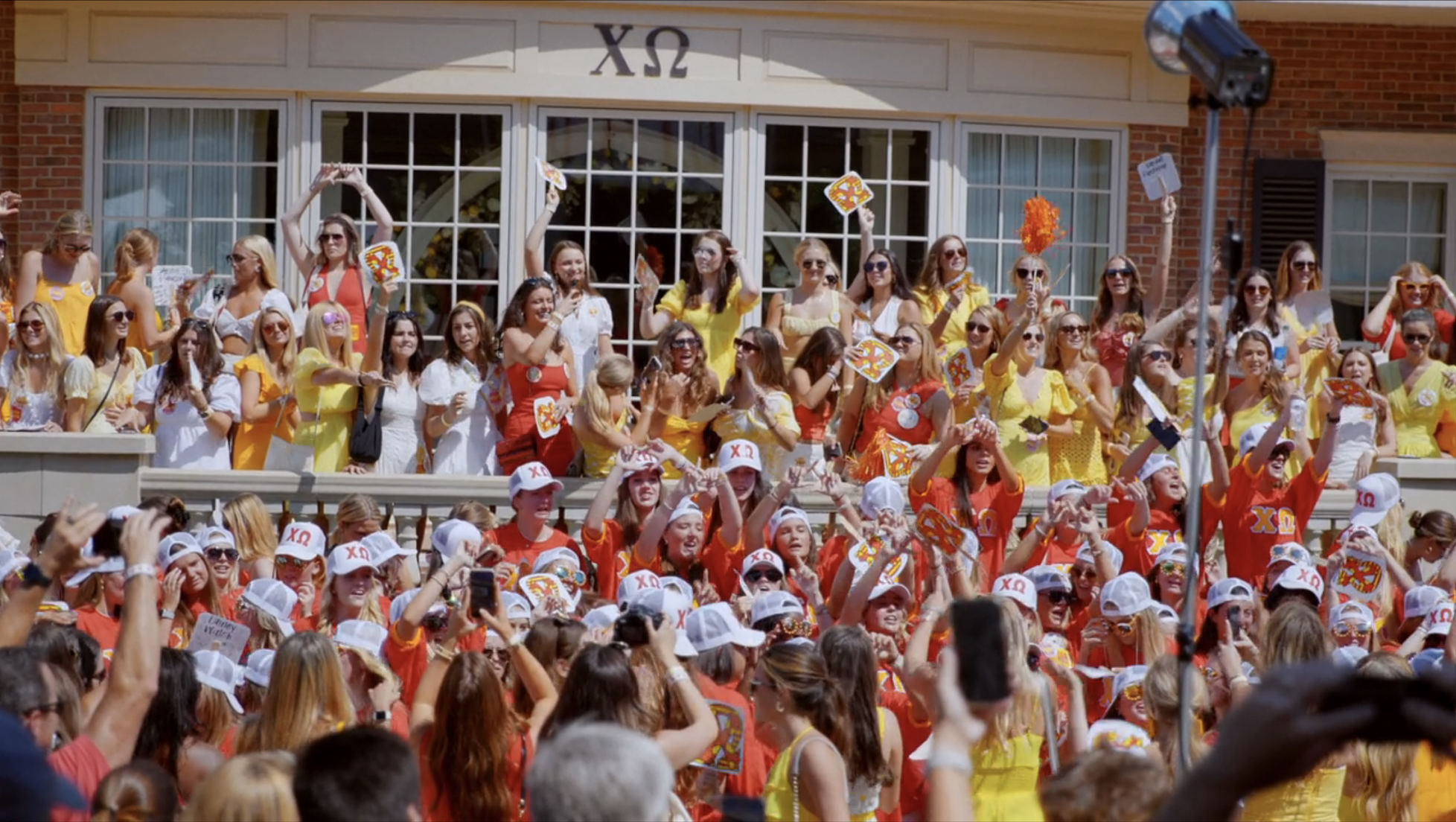
One Sigma Kappa sister, Rian, talks about the microaggressions she's faced from sorority sisters as a Black woman. "There's one girl in my sorority that... probably every time that I, like, sit down and I talk to her, she's like, 'Remind me, which one of your parents is white?' I'm like, 'It's still my mom. It is still my mom, every single time that you will ask me.'"
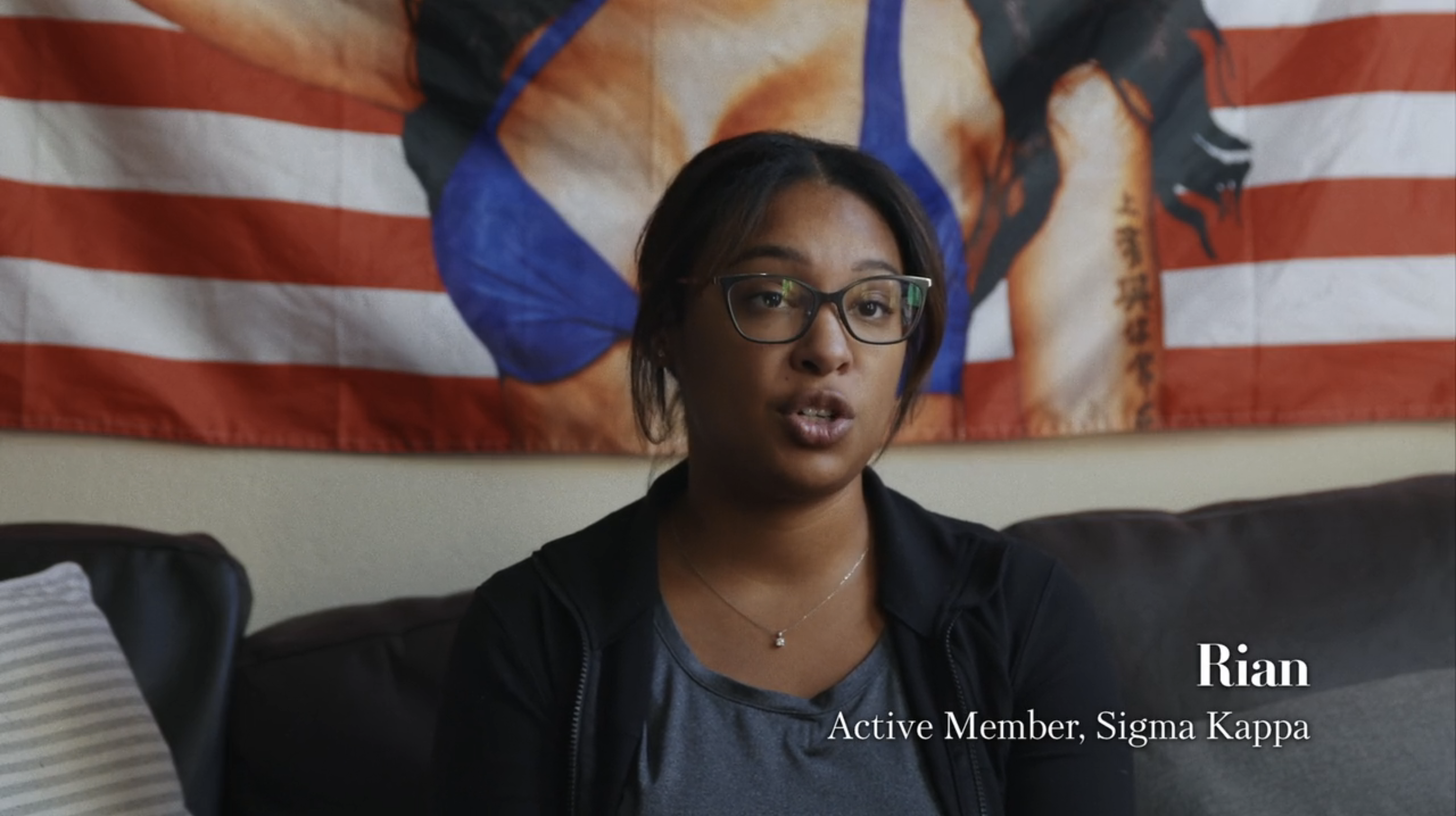
7. In the documentary, Fleit interviews UA alum Deidra Chestang Lane about a disturbing cross-burning incident that she bore witness to during her junior year.
Deidra, who graduated in '87, was a founding member of the UA chapter of Alpha Kappa Alpha, a historically Black sorority and one of what is known as the Divine Nine. She also attended the university for law school from 1987 to 1990. "I was there for two tours," she quips.
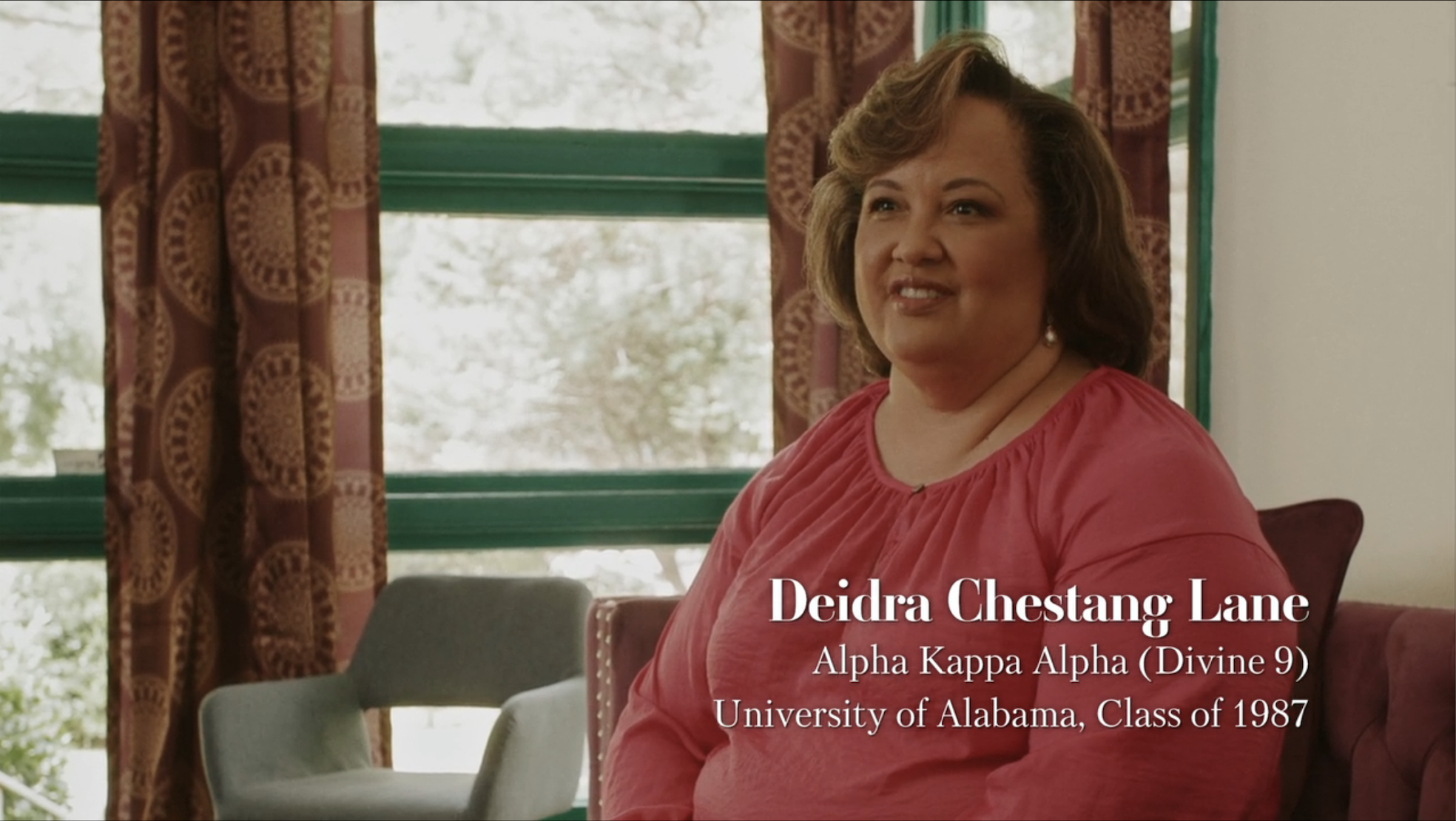
"One night, after we were at a fraternity party, we were driving by, and we noticed a smoldering cross on the front lawn," says Lane. "We were terrified. And anger crept in later, after we got beyond the shock and the dismay of the entire situation."
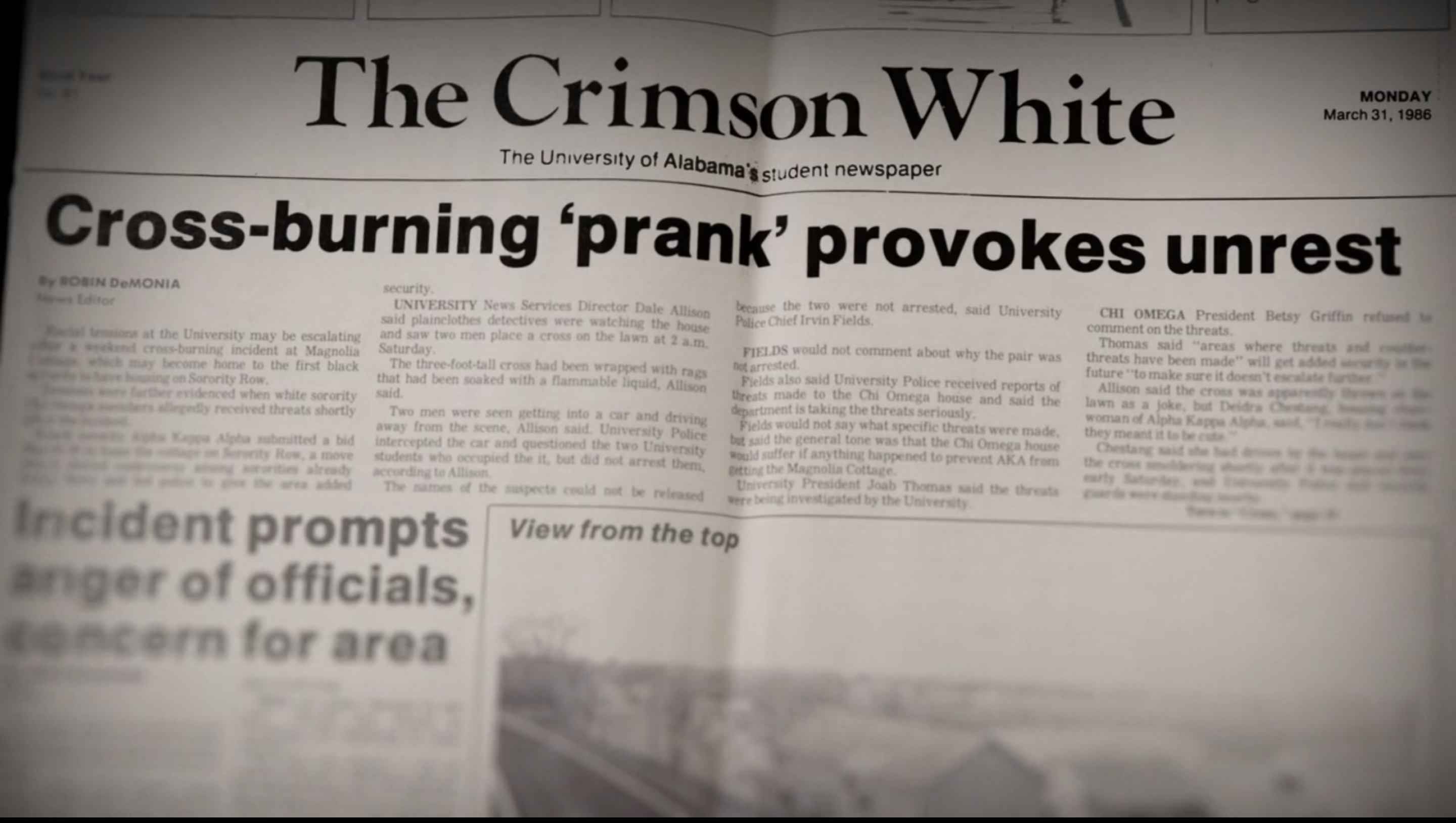
"I grew up in Alabama, so...crosses being burned was something I grew up hearing about," she says. "But I never had personally seen a cross being burned. And once you see that, you can't unsee it. And it sticks with you for a lifetime."
The incident occurred in 1986 on the front lawn of the house that members of AKA were considering moving into, a house in the otherwise all-white sorority row of Magnolia Drive.
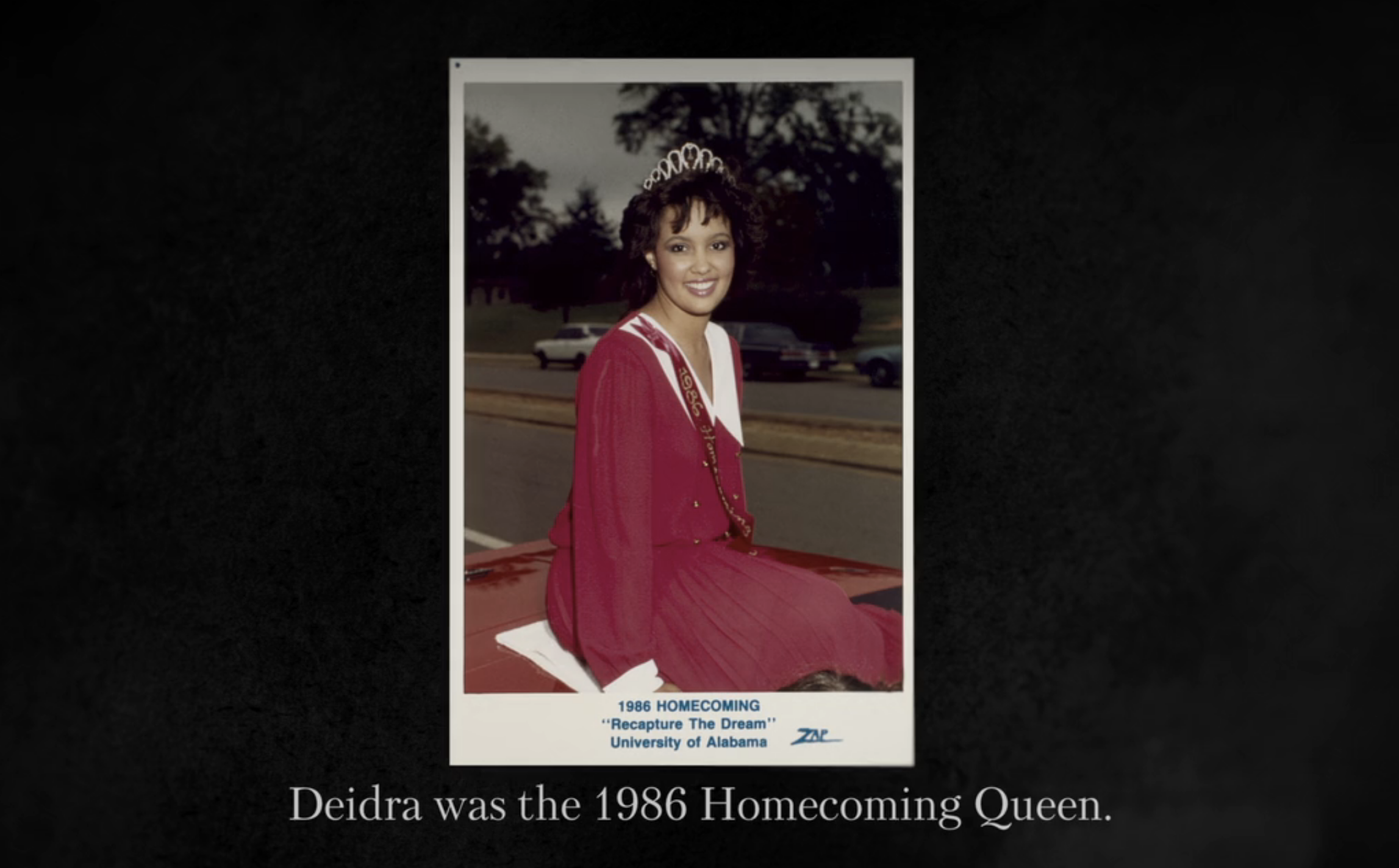
8. Something the film does not go into detail about: Greek life at the University of Alabama did not desegregate until 2013.
A polarizing article published that year in the Crimson White, the university's school newspaper, makes a disturbing claim: At least two sororities at UA that year were stopped from accepting Black members due to alumni intervention.
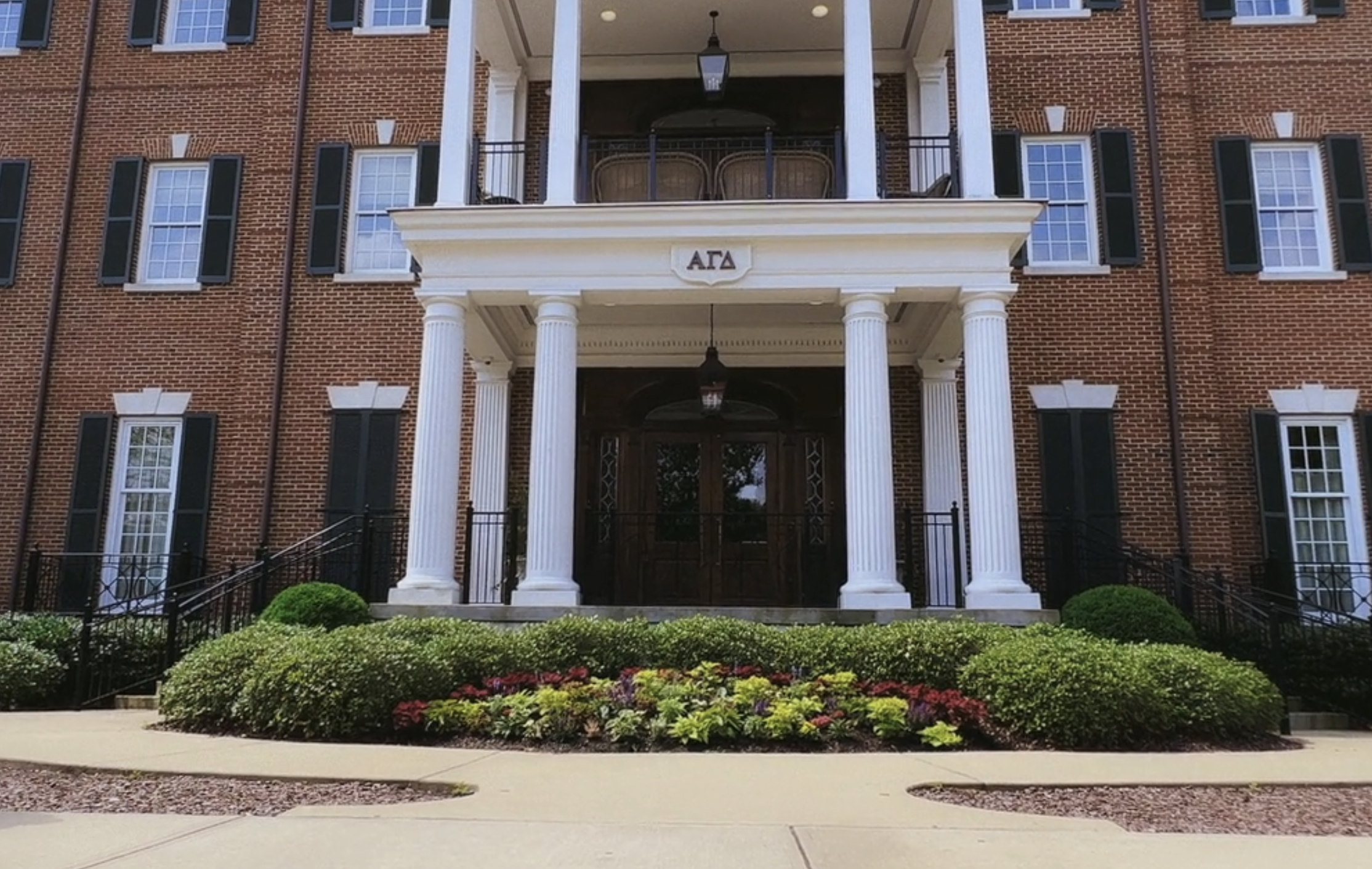
The same problem occurred at Tri Delta, Chi Omega, and Pi Beta Phi. "If we had been able to pledge [our Black PNM], it would’ve been an honor,” one Tri Delt sister told the Crimson White. “However, our [alumnae] stepped in and went over us and had her dropped.”
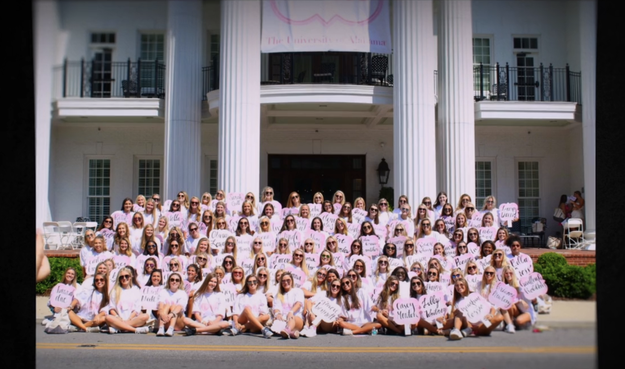
One Chi Omega sister told the newspaper that their chapter had dropped the Black recruit due to the chapter's advisor removing her from the rush process. The advisor in question worked for UA at the time, but retired that year for "personal reasons." The advisor responded to the paper's request for comment by saying, "As a private membership organization, Chi Omega’s membership selection process is confidential; however, our criteria for membership is simple, we seek women who reflect our values and purposes."

And at Pi Phi, an anonymous member told the paper that "Pi Beta Phi alumnae threatened to cut financial support if the recruit were to pledge." The President of Pi Phi told the Crimson White that "Recruitment is a mutual selection process. The fraternity does not share why or why not a member was selected for membership — even with alumnae of the chapter. The decision to extend membership resides solely at the chapter level."
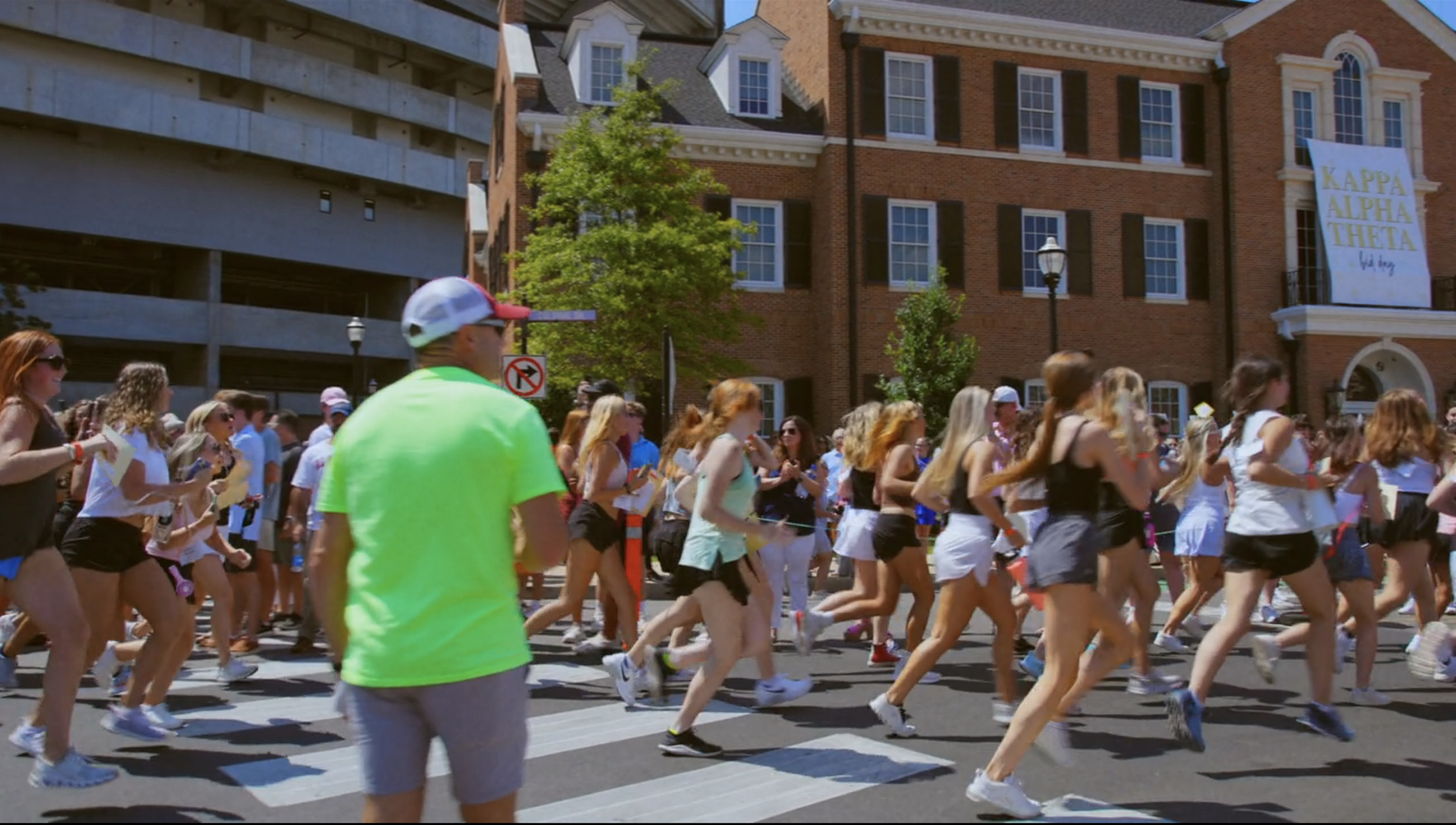
The Crimson White article led to significant public outcry, and that year, Alabama's Greek life was desegregated.
9. Around halfway through the film, the doc gets to its juiciest question: "Have you guys heard of this thing, the Machine?"
It's a thing. As the doc says, 'the Machine' is Alabama's chapter of Theta Nu Epsilon, a small group comprising of representatives from select sororities and fraternities. The doc tells us that the Machine meets privately, secretly, in basements of fraternity houses late at night, to decide how the members of their organizations will be told to vote in upcoming elections.
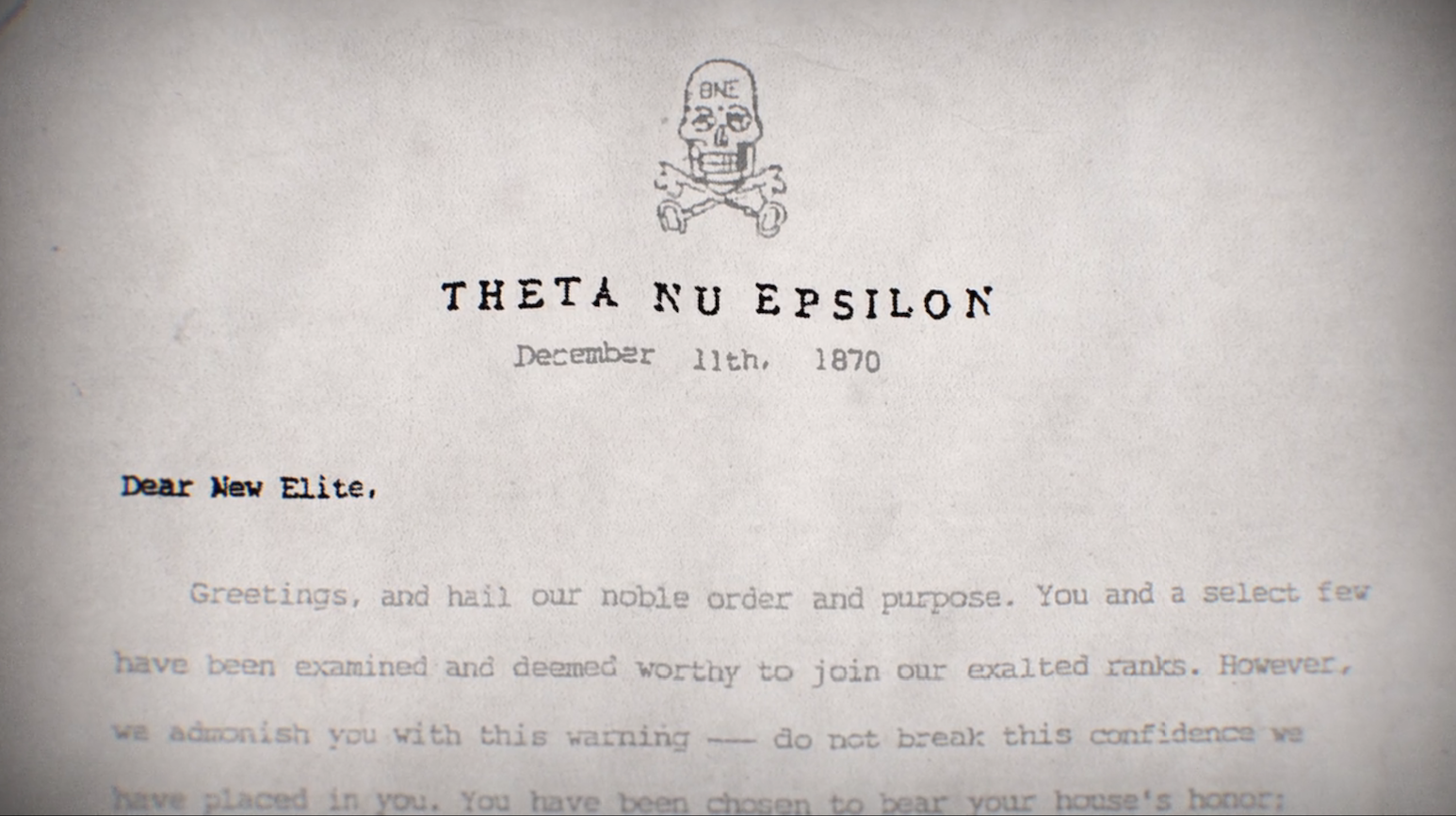
"The Machine is the Greek system," says a student named Garrett, an SGA Justice. "They're hand-in-hand, it's the exact same thing. They control everything on this campus, so there's an election, the Machine's rigging it, if there's a Homecoming Queen, it's the Machine candidate, you're gonna look at awards, and different jobs, and networks, it's all going to the Machine kids..."

Fleit turns to John Archibald, a Pulitzer Prize-winning journalist. "The Machine systematically made sure that a minority group on campus of elite people, who got special treatment and lived in special homes, who came from the most affluent and powerful families, got an advantage on everyone else," Archibald tells her.

10. Allegations of violent instances of Machine intimidation have been widely reported. In 1993, the non-Machine candidate for SGA President was physically attacked in her home. The film mentions this attack indirectly, showing photographs of newspaper clippings, but omits details.

An archived Crimson White article tells the story: SGA President candidate Minda Riley was attacked in her apartment, by a man with panty hose stretched over his head. The Crimson White was told that "the man attacked her, yelling 'You f--- with the wrong people, you get f---ed.'" The attack left "a golf-ball-size bruise on her cheek, a busted lip, and a knife wound on the side of her face." This came after a cross was burned outside of her house.

11. The documentary tells us that "the University actually had to shut down the Student Government Association from 1993 until 1996" over the incident.
"[The Machine is] a way better teacher of how to do nefarious things for power than you could ever get in a political science class," John Archibald tells Fleit. And the Machine's power appears sobering: Any time a student is asked about its existence, they freeze.

12. Another thing the doc doesn't discuss: Sororities were not a part of the Bama chapter of Theta Nu Epsilon until the early '80s. And as well as sexism, the organization has faced numerous allegations of racism.
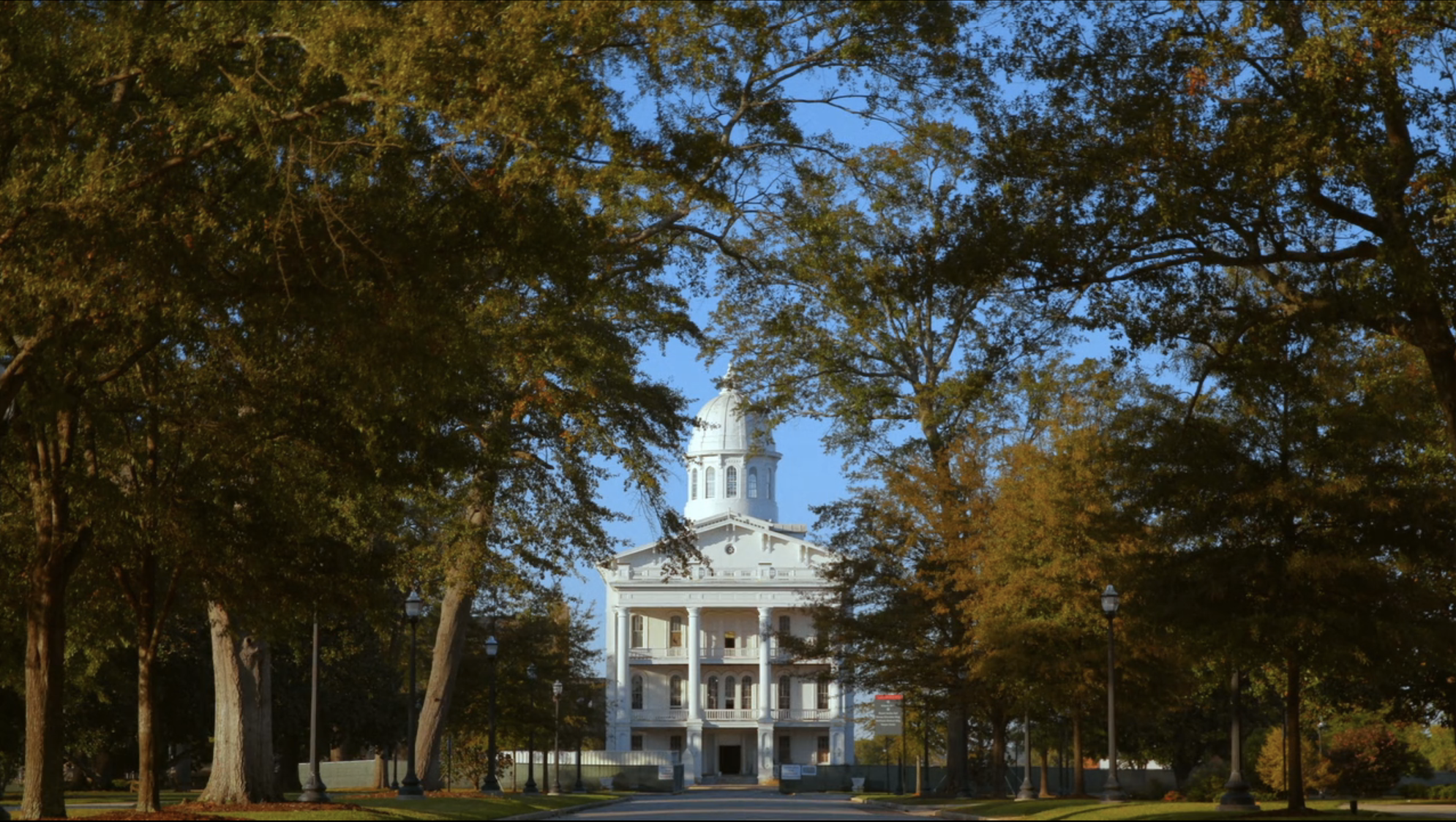
And something else the film might have covered: The people who gain power through the Machine are able to levy it into positions of power after they graduate, becoming some of the most influential people in Alabama.

In 2021, John Archibald spoke with assistant news editor Isabel Hope about the politics of the Machine and "the sheer number of politicians who come out of that system." Archibald wrote for the Crimson White while he was in undergrad, exposing Theta Nu Epsilon's machinations. "[The Machine] is really a breeding ground for politicians," he told Hope. "It’s a classic story of privilege versus justice.”

13. In 1992, journalist Philip Weiss wrote a famed exposé on the Machine in Esquire. Trey Boston, then the (Machine-backed) outgoing SGA President, said that "if you look at the list of men and now a woman who have been endorsed by the Machine and elected SGA president at the University of Alabama, you see US senators, you see Congressmen, you see doctors, you see lawyers, you see businessmen."
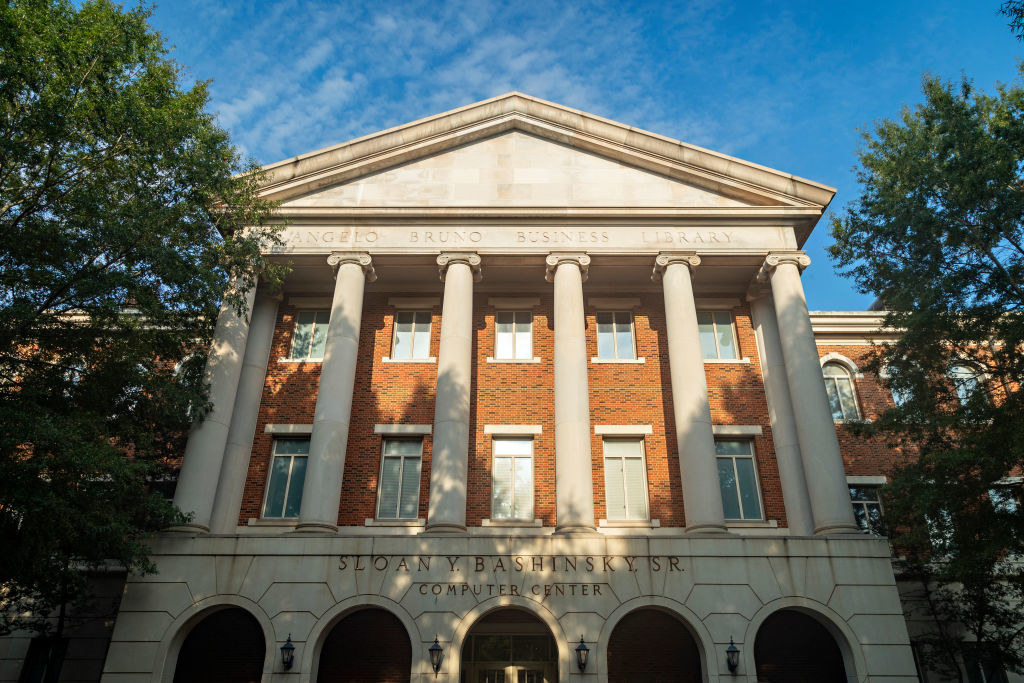
One former Machine affiliate once told the Crimson White that "The goal is to run campus politics, but the real reason they want to run campus politics is so they themselves can run politics in Alabama.”


